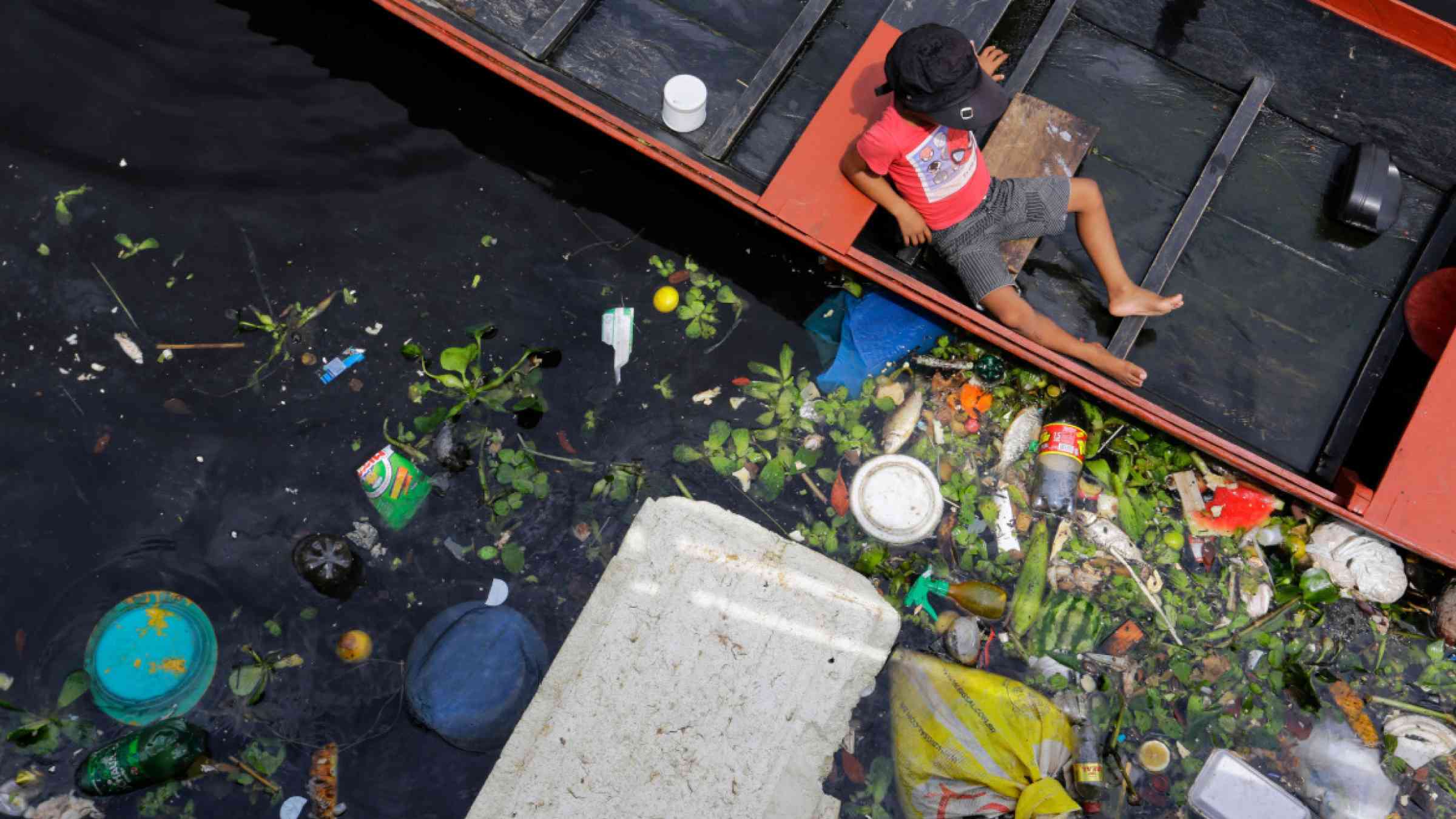Riobardas and the path to flood resilience in El Salvador

Removing waste from water bodies helps to tackle various issues, including flood risks. As a member of the Zurich Flood Resilience Alliance, Plan International worked with two communities in El Salvador to build and install a new waste collection method, known as Riobardas, in a river that contributes to the flood risks these communities face.
Plan International’s flood resilience work in El Salvador is guided by the Flood Resilience Measurement for Communities (FRMC) approach which, in collaboration with communities, provides an understanding of current flood resilience levels and identification of appropriate actions to enhance it.
The FRMC results from the two communities of Colima and Santa Bárbara, El Salvador, showed that inadequate solid waste management is one of the main issues related to flood resilience in those communities. Inadequate solid waste management leads to contamination of the environment, affects livelihoods and can increase the impact of floods on these communities.
Community members don’t dispose their waste adequately and, as the municipality does not have a waste collection system in place, it ends up in the streets. During heavy rainfall, the waste gets washed away and enters the Lempa-river with various consequences. Accumulations of waste, such as plastic bottles, can clog the sewers, so that water cannot drain properly during floods. Furthermore, the accumulated waste that is washed away can damage households or other infrastructure, such as bridges or gates.
Moreover, the flora and fauna of the river as well as artisanal fishing practices forms the basis for one of the main livelihoods of these communities. This is all negatively affected by the waste. For example, fish ingest it as they mistake it for food. This poisons them and affects their reproduction, which in turn has a direct impact on the livelihoods of families and their health, who eat the fish. In addition, during floods, waste is washed into homes, accelerating the reproduction of disease-carrying vectors. Lastly, the waste can damage the motors of the fisher boats when it gets caught in the boats’ rotors, affecting its operation and increasing the losses.
Riobardas: a new waste collection method for communities
To address this issue, Plan International’s project staff, in collaboration with various local actors (Community Civil Protection Commission, Fishing Cooperatives, Ministry of Environment and Natural Resources), built and installed hand-made waste-traps called “Riobardas”. Riobardas are made of nets, synthetic ropes and recycled plastic bottles and are attached on each side of the riverbank. Because of its net-like structure, it effectively limits waste from floating away. The Riobardas adapt to the water conditions and movement, and they can be adjusted in size, shape and anchorage, allowing them to function effectively in different environments and water currents. Recycled materials are used to construct the traps. Finally, using nets of a specific size allows aquatic animals to escape safely, should they get trapped.
Two 50-metre-wide traps were anchored at two points in the Lempa-river. The community civil protection commission, the community development association and small fishing cooperatives, advised by Plan’s project staff and the Ministry of Environment and Natural Resources helped to set up and install those traps.
Thanks to the Riobardas, we saw a noticeable reduction in pollution, which allows us to fish in clean and unobstructed waters. In addition, the cleanliness of the river helps protect our nets, enhancing their durability considerably
– Eliezar Alfaro, Committee Coordinator of the Colima community.
Commercializing waste
The fishers from the fishing cooperatives divide the maintenance of the Riobardas among themselves. When entering the river to go fishing, they collect the waste that floats in the trap, clean the trap and maintain it. Through a newly implemented recycling-system, the fishers, in coordination with the Community Civil Protection Commission and the Community Development Association (ADESCO), sort, store and commercialize the plastic and other waste they have collected through the community recycling station.
The recycling station is managed by an ad-hoc committee appointed by the community. It is supervised by the communal civil protection commission, which makes sure that the defined roles and responsibilities are properly carried out. The income that is generated by selling plastic bottles to small recycling businesses in the community is used to maintain this intervention, such as by buying supplies to repair the Riobardas.
Benefits of the Riobardas
Through the Riobardas, the river is freed from waste which allows for better water flows as the drains are not clogged in the event of flooding. By removing waste from the river, water quality is improved, improving the health of the aquatic ecosystem and hence, benefitting the livelihoods of community members.
As a large part of the community and other actors are involved in building the trap, setting it up, maintaining it and commercializing the collected waste, awareness about waste management and its link to flood resilience has been raised among various stakeholders. The intervention has been approved by the local government, as they believe that it is a sustainable strategy with multiple benefits, which can be implemented with very little financial resources.